Selling a home involves more than setting the right price and finding a buyer. As you prepare for the final steps in the process, it’s important to account for closing costs, an essential factor in determining your overall profit. These fees cover a range of expenses, from real estate agent commissions to legal paperwork, and can impact how much you walk away with at the end of the sale. Knowing what to expect ensures you’re not caught off guard, allowing for smoother transactions and better financial planning throughout the home-selling process.

Real Estate Agent Commissions
One of the largest components of closing costs when selling a home is the real estate agent’s commission. Typically, this fee is around 5% to 6% of the home’s sale price, although it can vary depending on the local market and the agent’s experience. This commission is usually split between the seller’s agent and the buyer’s agent, rewarding both for their roles in facilitating the transaction. While it might seem like a hefty percentage, agents provide critical services, from marketing your property and negotiating offers to navigating legal requirements and paperwork.
Although commissions are a significant portion of closing costs, sellers often find the value of professional assistance well worth the expense. Agents leverage their knowledge of the market to help you list at the optimal price, attract serious buyers, and handle negotiations effectively. In competitive markets, agents can also help secure multiple offers, which may even push the final sale price higher than expected. Their expertise can streamline the entire process, saving you time and stress.
It’s important to note that while the seller typically covers both the listing and buying agents’ commissions, these fees are negotiable. Some agents might be open to lowering their rate, particularly if you’re selling a high-value property or if the market is hot. Discussing commission rates upfront can help clarify expectations and allow you to factor these costs into your overall financial plans. By understanding the role of agent commissions, you can better prepare for the true cost of selling your home.
Title Insurance and Escrow Fees
Title insurance and escrow fees are crucial components of the closing costs associated with selling a home. Title insurance protects the buyer and seller against any future legal claims or disputes over the property’s ownership, ensuring a clear and undisputed transfer of title. Sellers typically pay for the buyer’s title insurance policy as part of the closing costs, though this can vary by region. The cost of title insurance depends on the sale price of the home, but it usually ranges from a few hundred to a couple of thousand dollars.
Escrow fees, on the other hand, cover the services of an escrow company or attorney, who acts as a neutral third party managing the financial aspects of the transaction. The escrow agent holds onto the buyer’s funds, ensuring that all conditions of the sale are met before disbursing the money to the seller. Escrow fees are often split between the buyer and seller, though local customs may dictate otherwise. These fees typically run between 1% and 2% of the sale price, depending on the complexity of the transaction and the escrow service provider.
Both title insurance and escrow fees serve to protect both parties in the sale, ensuring the transaction is handled fairly and securely. While these costs may not be as large as agent commissions, they are still essential to a successful closing. Being aware of these expenses allows sellers to plan appropriately and avoid any surprises as the sale progresses. Factoring in title and escrow costs from the start helps create a realistic picture of the net proceeds from the sale.
Prorated Property Taxes
When selling a home, property taxes are often prorated, meaning the seller pays their portion of the annual tax bill up to the date of the sale. This ensures that both the seller and buyer fairly share the tax responsibility for the year. Since property taxes are typically paid on a yearly or semi-annual basis, if the seller has already paid the taxes for the entire year, the buyer will reimburse the seller for the period they will own the home. Conversely, if taxes are still due, the seller is responsible for covering the portion of taxes owed up to the sale date.
Prorating property taxes ensures a smooth transition of ownership and avoids any confusion or disputes about who owes what. For sellers, this adjustment is usually straightforward, with the exact amount calculated by the title company or closing agent based on the sale date. The total amount will depend on local property tax rates, which vary by area and can fluctuate depending on the assessed value of the home and the local government’s budget.
It’s also important to note that, in some areas, additional assessments or levies may apply. These could include charges for local improvements such as new roads, schools, or public services. Sellers should review their property tax bill carefully to understand if such costs are included and ensure they are accounted for in the final closing costs. By planning for prorated property taxes, sellers can avoid surprises during the closing process and ensure that both parties contribute their fair share to these ongoing obligations.
Transfer Taxes and Recording Fees
Transfer taxes and recording fees are standard costs associated with selling a home, and they can vary significantly depending on the location of the property. Transfer taxes, sometimes referred to as deed or conveyance taxes, are government-imposed fees that apply when ownership of a property is transferred from the seller to the buyer. The amount typically depends on the sale price of the home and local tax rates, which city, county, or state governments can levy. In many cases, the seller is responsible for covering these taxes, though this can vary by region or be negotiated between the buyer and seller.
Recording fees are paid to the local government to officially record the transaction in public records, ensuring that the transfer of ownership is legally recognized. These fees cover the cost of processing and documenting the sale, including updating the title records to reflect the new owner. Like transfer taxes, recording fees are often tied to the property’s value, but they are generally less expensive, ranging from a few hundred dollars.
Both transfer taxes and recording fees are essential for ensuring that the sale is legally binding and properly documented. Failure to pay these costs could delay the closing process or create legal complications down the road. Sellers should familiarize themselves with local regulations, as some areas may offer exemptions or reduced rates for certain types of sales, such as first-time homebuyers or properties sold below a specific price threshold. Understanding these fees upfront can help sellers budget more accurately and avoid unexpected costs during the final stages of the sale.
Homeowners Association (HOA) Fees and Transfer Costs
For sellers whose properties are part of a homeowners’ association (HOA), there are often additional costs to consider as part of closing. These typically include prorated HOA dues, transfer fees, and, in some cases, special assessments. If you’ve paid HOA fees in advance, you may need to prorate those amounts to cover the period up until the sale date. This ensures that both the seller and buyer fairly share the cost of HOA dues for the time they each own the property.
HOA transfer fees are administrative costs charged by the homeowners’ association to process the transfer of ownership. These fees cover updating the association’s records, issuing new documents, and ensuring the new owner is properly registered with the HOA. Transfer fees vary depending on the association and region, but they can range from $200 to $1,000. While typically paid by the seller, these fees can sometimes be negotiated between the buyer and seller.
In addition to regular dues and transfer fees, sellers should be aware of any special assessments that may apply. Special assessments are extra charges levied by the HOA to fund significant repairs or improvements, such as roof replacements, new landscaping, or community pool renovations. If an assessment has been approved before the sale but hasn’t yet been paid, the seller may be required to cover their portion before closing.
Understanding HOA-related costs is crucial for sellers in planned communities. These fees not only impact the final proceeds but also ensure the buyer transitions smoothly into the responsibilities of the association. By addressing any outstanding dues, transfer costs, or special assessments ahead of time, sellers can prevent delays in the closing process and avoid potential conflicts with the HOA or the buyer.
Home Inspection and Repairs
While not always a direct part of closing costs, home inspections, and subsequent repairs can lead to additional expenses for sellers before the sale is finalized. Most buyers will request a home inspection to ensure the property is in good condition. If the inspection reveals issues such as structural damage, plumbing problems, or electrical hazards, the buyer may ask the seller to either make repairs or provide a credit toward the cost of fixing the issues.
Sellers are often responsible for addressing major problems that could affect the safety or livability of the home. Common repairs include fixing leaky roofs, addressing foundation cracks, replacing outdated wiring, or resolving plumbing leaks. Depending on the extent of the repairs, these costs can vary significantly, from minor fixes costing a few hundred dollars to larger projects that could cost thousands. In competitive markets, some sellers may choose to address potential issues proactively before listing the home to avoid costly negotiations later.
Alternatively, rather than completing the repairs themselves, sellers might offer a repair credit at closing. This allows the buyer to handle the repairs after the sale while reducing the immediate burden on the seller. The amount of the credit is typically negotiated between both parties, depending on the scope of the work needed.
Planning for potential inspection-related costs can help sellers avoid surprises and ensure the transaction proceeds smoothly. While inspections and repairs might not be part of the formal closing costs, they are often a significant factor in determining the final sale price and can impact the overall profitability of the sale. By being prepared for these expenses, sellers can protect their bottom line and ensure the deal moves forward without unnecessary delays.
Mortgage Payoff and Prepayment Penalties
If you have an outstanding mortgage on your property, paying off the remaining balance is a crucial part of the closing process. The mortgage payoff amount includes the remaining loan balance, along with any accrued interest up until the closing date. When selling your home, the title company or closing agent will request a mortgage payoff statement from your lender, which details exactly how much is needed to fully satisfy your loan obligation. This amount is then deducted from the proceeds of the sale.
In some cases, sellers might also face a prepayment penalty if they pay off their mortgage early. Prepayment penalties are fees charged by some lenders when a mortgage is paid off before a specific period, usually within the first few years of the loan. These penalties exist to compensate the lender for lost interest payments. The exact terms of prepayment penalties vary, but they can be a percentage of the remaining loan balance or a set amount, depending on your loan agreement. Not all mortgages carry this penalty, but it’s important to check your loan documents or consult with your lender to confirm if it applies.
Sellers should also be aware of any fees related to processing the payoff, such as wire transfer fees or administrative costs charged by the lender. Understanding the mortgage payoff process, including any potential penalties, helps ensure that sellers can accurately calculate their net proceeds from the sale. By accounting for the payoff amount in advance, sellers can avoid delays and ensure a smooth closing. Additionally, clarifying any prepayment penalties upfront allows sellers to make informed decisions about whether selling their home now makes financial sense.
Attorney and Notary Fees
In many real estate transactions, particularly in states where legal representation is required for closing, attorney fees are a key component of the closing costs. Real estate attorneys oversee the legal aspects of the sale, ensuring that all contracts and documents are in order and that the transfer of ownership adheres to local laws and regulations. While some sellers may opt to hire an attorney to represent them, others may use an attorney provided by the title company or the buyer. The fees for these services vary based on the attorney’s experience and the complexity of the transaction, typically ranging from $500 to $1,500.
Notary fees are another expense that may arise during closing. A notary public serves as an impartial witness to the signing of legal documents, verifying the identities of the signers and ensuring that all documents are executed properly. While not always required in every transaction, notary services are commonly used to ensure the legality of key documents, such as the deed transfer and loan payoff paperwork. Notary fees are generally modest, ranging from $50 to $200 depending on the number of documents and the notary’s rates.
Having legal representation and proper notarization adds a layer of protection to the seller, ensuring that the transaction is legally sound and minimizing the risk of disputes or issues after the sale. Though attorney and notary fees are not the largest closing costs, they provide essential services that safeguard the seller’s interests throughout the process. Being aware of these costs in advance helps sellers budget accordingly and ensures all legal steps are handled efficiently during the closing phase.
Miscellaneous Closing Costs and Final Adjustments
In addition to the major expenses, sellers may encounter a range of smaller, miscellaneous closing costs that can still add up by the time the sale is finalized. These costs might include courier fees, which cover the transportation of documents between the various parties involved in the transaction, such as the title company, lender, and buyer’s agent. Although generally minor, courier fees can range from $50 to $150, depending on the complexity of the paperwork and the distance between parties.
Another potential expense is a fee for obtaining a “certificate of compliance” or “certificate of occupancy,” which may be required by local municipalities. This document certifies that the property complies with local building codes and is safe for occupancy. In some areas, the seller is responsible for providing this certificate before closing, and the cost can vary based on local regulations.
Utilities and other recurring expenses are often prorated in a similar way to property taxes. Sellers will typically need to pay for any outstanding bills up to the date of closing. These could include water, electricity, gas, trash collection, or even landscaping services if applicable. If these costs have already been prepaid, the buyer will reimburse the seller for their share. Sellers should ensure they gather final meter readings and settle any remaining utility balances to avoid complications.
Sellers may also incur fees for the removal of liens or judgments attached to the property. If there are outstanding debts or legal claims tied to the home, such as unpaid taxes or contractor liens, these must be cleared before the sale can proceed. By understanding these smaller closing costs and making the necessary adjustments ahead of time, sellers can ensure a smoother closing process and avoid unexpected deductions from their final proceeds.
Preparing for a Smooth and Successful Home Sale
Closing costs are an important consideration when selling a home, and being aware of each expense helps ensure a seamless transaction. From real estate commissions and title fees to taxes and legal costs, these expenses can influence your final net proceeds. Planning for these costs early in the process will allow you to avoid surprises, streamline the sale, and maximize your profit.
If you’re ready to sell your home, reach out today. I’m here to help you navigate the process with confidence and ensure a successful closing.




